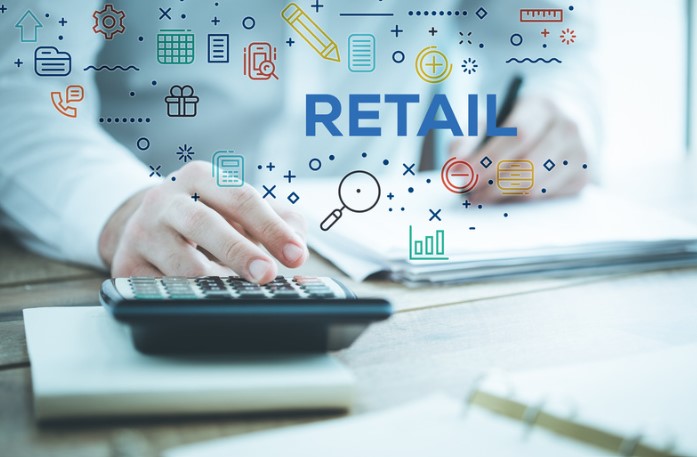Going into business without cash can be difficult and time-consuming in the long run, but with the right skill set, it can also be very rewarding. In this article, we’ll talk about how to start a retail business without any cash or assets.
What is a Retail Business?


Retail business is the business of selling goods or services to consumers in a physical store or online. The retail industry is one of the most competitive, with large companies fighting for market share. It is also one of the most diverse, with many small businesses selling unique products. Retail businesses vary in size, from mom-and-pop stores to big box retailers like Walmart and Target.
Retail businesses can be profitable or unprofitable, depending on their sales and marketing efforts or year-round, but they typically have shorter seasons than other types of businesses. This means that you will need to budget for additional expenses such as marketing and employee wages during slow periods.
What are the Benefits of Starting a Retail Business?

In the past, many people believed that starting a retail business was too expensive and difficult. However, times have changed. With the advent of eCommerce and online retail, there are now plenty of opportunities for people to start their own retail businesses without any initial investment. In fact, many small businesses today are started by individuals who have little to no money upfront.
Here are some of the benefits of starting a retail business:
1. You Can Work From Home – One of the biggest benefits of starting a retail business is that you can work from home. This means that you don’t have to commute and spend hours on the road each day. You can also set your own hours and schedule, which is great if you have children or other commitments that prohibit you from working traditional hours.
2. No Inventory Required – Another big benefit of starting a retail business is that you don’t need any inventory. This means that you don’t have to worry about storing inventory or dealing with high shipping costs. All you need is an e-commerce website and a sales team to sell your products.
3. High Commission Rates – Many small businesses today offer high commission rates, which makes it very profitable for owners. For example, commission rates for online retailers usually get between 10% and 15%. -It’s also cheaper.
4. New Trends – One thing that small businesses can provide is new trends. If there is a product trend in the marketplace, it’s usually hard to find a retail store or manufacturer that has it in stock. However, small business owners can make sure they are stocked on this trend and offer it to their customers. This also helps them compete with larger companies that might not be as quick to react to these new items.
How To Start a Retail Business with No Money?

Starting a retail business can be a great way to make money, but it’s not always easy. If you don’t have any money to start with, you can use some creative financing options to get your business off the ground. Here are some tips on how to start a retail business without any money:
1. Find A Niche Market
Before you start selling anything, you need to figure out what kind of products or services your business is going to offer. You can research this by talking to potential customers and looking at industry trends.
2. Get Organized
Before you even start stocking shelves or creating marketing materials, you need to create a system for inventory management and customer data tracking. This will help you keep track of your sales and inventory levels, and help you make better decisions about where to allocate resources.
3. Build Relationships with Suppliers and Manufacturers
When you first start out, it will be important to build relationships with key suppliers and manufacturers so that you can get discounts on products and services. This will help offset the costs of starting up your business.
4. Set Prices Reasonably
One of the most important aspects of starting a retail business is setting reasonable prices for your products. You don’t want to price yourself out of the market or set a price that is too high. In business school, you’ll learn about the rules of thumb for setting prices – research has shown that most people tend to price themselves out of the market by charging too little when they’re first starting out.
5. Cultivate Repeat Customers and Referrals
When you’re first starting out, it will be important to focus on cultivating repeat customers and building relationships with customers you already have. This will help build your customer base, which can be important in helping you stay in business long term.
Financing Options for Your Retail Business

There are a number of ways to get started in retail without any upfront capital. You can seek out financing through personal loans or credit cards, or through business loans from banks or other lenders. There are also a number of options for finding investors to help you get your business off the ground.
1. Personal loans: If you have good credit and can meet the terms of a personal loan, you may be able to get a small loan from a bank or other financial institution. You’ll likely need to provide your bank with your business plan and updated financial statements, as well as proof of your assets and income.
2. Credit cards: Another option for getting started in retail is to use a credit card. Credit cards offer low-interest rates and flexible terms, which can make them an attractive option if you’re starting a small business. However, be aware that credit card debt can be difficult to pay off, and your credit rating may suffer as a result.
3. Business loans: A business loan may be the best option for you if you have good credit and enough collateral (such as assets owned by the business). Business loans can be difficult to obtain, but they can provide you with the money you need to start a business.
Is There Anything Else You Should Know?
If you want to start a retail business with no money, you should be prepared to put in a lot of hard work. You will likely need to find a location, get a permit and build up your inventory. You will also need to develop marketing plans and create a pricing strategy. However, if you are willing to work hard, there is no doubt that starting your own business can be rewarding.
Conclusion
There’s no need to feel overwhelmed when starting a retail business. With the right plan and some hard work, you can be up and running in no time. In this article, we have outlined the steps you need to take in order to start your own retail business with little or no money down. From planning your store layout and inventory to marketing your store and getting the word out there, this guide will cover it all. So, what are you waiting for? Start planning you’re dream retail space today!







GIPHY App Key not set. Please check settings